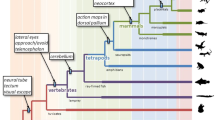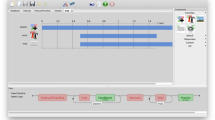Abstract
Psychologism is defined as “the doctrine that the laws of mathematics and logic can be reduced to or depend on the laws governing thinking” (Moran & Cohen, 2012 266). And for Husserl, the laws of logic include the laws of meaning: “logic evidently is the science of meanings as such [Wissenschaft von Bedeutungen als solchen]” (Husserl (1975) 98/2001 225). I argue that, since it is sufficient for a theory to be psychologistic if the empiricistic theory of abstraction is employed, it follows that neural networks are psychologistic insofar as they use this theory of abstraction, which I demonstrate is the case (Husserl (1975) 191/2001 120). It’s sufficient for psychologism because, according to Husserl, the theory in question reduces one’s phenomenological ability to intend types (or universals) to one’s past history of intending tokens (or particulars), usually amalgamated in some fashion (classically via associations; recently via autoencoders) (ibid; Kelleher, 2019). Similarly dynamical systems theory entails psychologism. For dynamical systems theory ties content to the temporal evolution of a system, which, according to Husserl, violates the fact that intentionality toward validities and objectivities does not pertain to "particular temporal experience[s]" (Husserl (1975) 194/2001 121). It follows that neither the species (neural networks), nor the genus (dynamical systems), can avoid psychologism and intend objects "in specie" (ibid). After critiquing these two approaches, I proceed to give an account based on the essentialist school of cognitive psychology of how we may intend objects "in specie" while avoiding the empiricistic theory of abstraction (Keil, 1989, Carey, 2009, Marcus & Davis, 2019). Such an account preserves the type-token distinction without psychologistic reduction to the temporal evolution of a dynamical system (Hinzen, 2006). This opens the way toward a truly unifying account of Husserlian phenomenology in league with cognitive science that avoids Yoshimi's (2016) and neurophenomenology's psychologistic foundation (herein demonstrated) and builds upon Sokolowski's (2003) syntactic account of Husserlian phenomenology.
Similar content being viewed by others
Notes
The fact that this is always possible for any two isomorphic networks already shows that networks do not have a workable (non-psychologistic) theory of content: “It is perfectly possible, for example, that the concept ROUND has the same location on one graph as the concept SQUARE does on some isomorphic graph. If that’s the situation, then according to the present way of understanding the graphs (as unlabeled), the ROUND node location and the SQUARE node location express the same content” (Fodor & Pylyshyn, 2015 50).
A dynamical system, just to be clear, is “a mathematical object which describes the change in state of a system over time” (Faries & Chemero, 2019 135). However relevant such an approach might be to the mind in other respects, tying the content of the conceptual to the temporal (i.e. “over time”), as is the case in dynamical neural networks, is psychologism. The impossibility of meaning and communication on this view has recently been noted by Fodor & Pylyshyn (2015 55). The impossibility of objectivity and validity on this view was noted by Husserl long ago: “‘Validity’ or ‘objectivity,’ and their opposites, do not pertain to an assertion as a particular temporal experience, but to the assertion in specie, to the pure, self-dentical assertion 2 × 2 = 4 etc.” (Husserl (1975) 194/2001 121).
For a detailed discussion of the several varieties of arguments Husserl uses against psychologism which culminate in the Grundfrage, see Hanna 2008.
This should not be surprising. After all, artificial neural networks (ANN's) are identified as a species of empiricism: "ANN’s are just Empiricism with a degree in computer science" (Fodor & Pylyshyn, 2015 48).
This is why Fodor (1983) modularity is Turing-style in processing but sub-conceptual in content.
Otherwise Turing machines would have no empirical explanatory power. But they do (Fodor, 1981 13–16). Perhaps one might object that this isn’t very Husserlian, but Husserl insists that formal aspects of meaning can refer to “empirical sciences” for “explanatory purposes” (Husserl (1984) 345–6/2001 73). His saying so occurs in the context of his discussion of universal grammar, and parallels similar arguments found in Chomsky (1965).
References
Bianchin, M. (2018). Husserl on meaning, grammar, and the structure of content. Husserl Studies, 34(2), 101–121. Web.
Buckner C., & Garson J. (2019). Connectionism and post-connectionist models. The Routledge Handbook of the Computational Mind. Ed. Sprevak & Colombo. Routledge, 76–90. Print.
Cain, M. J. (2012). Essentialism, externalism, and human nature. Royal Institute of Philosophy Supplement, 70, 29–51. Web.
Cain, M. J. (2016). The Philosophy of Cognitive Science. Polity P. Print.
Carey, S. (2009).The Origin of Concepts. Oxford. Print.
Chomsky, N. (1965). Aspects of the Theory of Syntax. MIT P. Print.
Churchland, P. (2012). Plato's Camera: How the Physical Brain Captures a Landscape of Abstract Universals. MIT Press,. Print.
Cummins, R. (2000). Part III: The Mind as Brain - Introduction. Minds, Brains, and Computers. Eds. Cummins & Cummins. Blackwell. Print.
Faries, F., Chemero, A. (2019). Dynamic Information Processing. The Routledge Handbook of the Computational Mind. Eds. Sprevak & Colombo. Routledge, 134–148. Print.
Fodor, J. (1975). The Language of Thought. Harvard P. Print.
Fodor, J. (1981). RePresentations. MIT P. Print.
Fodor, J. (1983). Modularity of Mind. MIT P. Print.
Fodor, J. (1998). Concepts. New York: Oxford. Print.
Fodor, J. (2008). LOT 2. New York: Oxford. Print.
Fodor, & Pylyshyn (2015). Minds without Meanings. MIT Press. Print.
Fodor, & Lepore. (1992). Holism: A shopper’s guide. Wiley-Blackwell. Print.
Gallagher, S. (2012). On the Possibility of Naturalizing Phenomenology. Oxford Handbook of Contemporary Phenomenology. Ed. Zahavi. New York: Oxford, 70–93. Print.
Gallagher, S. (2017). Enactivist Interventions. New York: Oxford. Print.
Gallistel, C. R. (2018). The Neurobiological Bases for the Computational Theory of Mind. On Concepts, Modules, and Language. Eds. Almeida & Gleitman. New York: Oxford, 275–296. Print.
Gallistel, C. R., & King, A. (2010). Memory & The Computational Brain. Wiley-Blackwell. Print.
Goodfellow, I., Bengio, Y., Courville, A. (2016). Deep Learning. MIT P. Print.
Hanna, R. (2008). Husserl’s Arguments against Logical Psychologism. Klassiker Auslegen 35: Logische Untersuchungen. Ed. Mayer. Akademie Verlag: Berlin, 27–42. Print.
Hanna, R. (2017). Transcendental Normativity and the Avatars of Psychologism. Commentary on Husserl’s Ideas I. Ed. Staiti. De Gruyter. Print.
Hinzen, W. (2006) Mind Design and Minimal Syntax. New York: Oxford. Print.
Hopp, W. (2011). Perception and Knowledge. New York: Cambridge U P. Print.
Husserl, E. (1975). Logische Untersuchungen. Husserliana: Band XVIII. Den Haag: Martinus Nijhoff. Print.
Husserl, E. (1984). Logische Untersuchungen. Husserliana: Band XIX. Springer. Print.
Husserl, E. (2001). Logical Investigations (vol. 1). Trans. Findlay. Routledge. Print.
Jackendoff, R. (1987). Consciousness and the Computational Mind. MIT Press. Print.
Keil, F. (1989). Concepts, Kinds, and Cognitive Development. MIT P. Print.
Kelleher, J. (2019). Deep Learning. MIT Press. Print.
Kriete, T., Noelle, D. C., Cohen, J. D., & O’Reilly, R. C. (2013). Indirection and Symbol-like Processing in the Prefrontal Cortex and Basal Ganglia. Proceedings of the National Academy of Sciences, 110 (41).
Lopes, J. (2020). How do mental processes preserve truth? Husserl’s discovery of the computational theory of mind. Husserl Studies, 36, 25–45. Web.
Marcus, G., & Davis, E. (2019). Rebooting AI: Building Artificial Intelligence We Can Trust. Pantheon. Print.
Moran, D., & Cohen, J. (2012). The Husserl Dictionary. Continuum. Print.
O'Reilly, R, et al. (2014). How limited systematicity emerges: A computational cognitive neuroscience Approach. The Architecture of Cognition. MIT P, 191–225. Print.
Simons, P. (1995). Meaning and language. The Cambridge Companion to Husserl. Eds. Barry Smith & Woodruff Smith. Cambridge U P, 106–137. Print.
Smith, A. D. (2008). The Critique of Empiricist Accounts of Abstraction. Klassiker Auslegen 35: Logische Untersuchungen. Ed. Mayer. Akademie Verlag: Berlin,3–103. Print.
Smith, E., Kosslyn, S. (2015). Cognitive Psychology: Mind and Brain. Pearson. Print.
Smolensky, P (1991). Connectionism, Constituency, and the Language of Thought. Minds, Brains, and Computers: The Foundations of Cognitive Science. Eds. Cummins & Cummins. Blackwell, 2000. 286–306. Print.
Sokolowski, R. (2003). Husserl’s Sixth Logical Investigation. Husserl’s Logical Investigations. Ed. Dahlstrom. Kluwer, 109–122. Print.
Stocco, A., Lebiere, C., & Anderson, J. (2010). Conditional Routing of Information in the Cortex. Psychological Review, 117, 541–574. Web.
Thompson, E. (2007). Mind in Life: Biology, Phenomenology, and the Sciences of Mind. Belknap P. Print.
Varela, F., Thompson, E., & Rosch, E. (2017). The Embodied Mind. MIT Press. Print.
Woodruff Smith, D. (1995). Mind & Body. The Cambridge Companion to Husserl. Eds. Barry Smith & Woodruff Smith. New York: Cambridge U P, 323–393. Print.
Yoshimi, J. (2016). Husserlian Phenomenology: A Unifying Account. Springer. Print.
Author information
Authors and Affiliations
Corresponding author
Additional information
Publisher's note
Springer Nature remains neutral with regard to jurisdictional claims in published maps and institutional affiliations.
Rights and permissions
About this article
Cite this article
Lopes, J. On the psychologism of neurophenomenology. Phenom Cogn Sci 23, 85–104 (2024). https://doi.org/10.1007/s11097-021-09773-8
Accepted:
Published:
Issue Date:
DOI: https://doi.org/10.1007/s11097-021-09773-8




